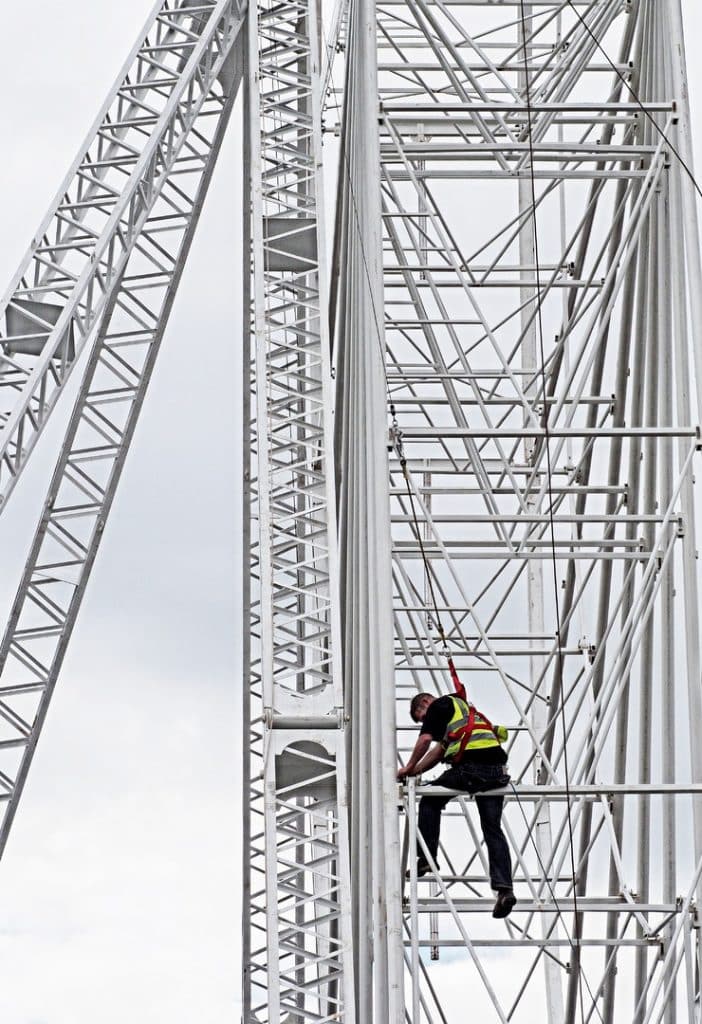Roofer jailed for four months after a worker was seriously injured falling through a fragile roof on to a concrete floor.
The man and another labourer, who were working for Geoff Whitehouse, trading as Midland Roofing, were working on a fragile roof on 11 August 2021 to remove old skylights at premises in Henley Road, Warwick.
The injured worker fell approximately three metres through the roof and suffered serious multiple fractures including a fractured skull.
HSE investigation
An investigation by the Health and Safety Executive (HSE) found that the majority of the work could have been done from underneath the roof. The inside of the roof could have been fitted with nets prior to anyone going on to the fragile surface so that someone falling would have been saved by the nets. The work at height was not adequately planned, managed nor supervised.
Additionally, Mr Whitehouse did not have employers’ liability insurance in place. Employers’ liability insurance ensures employers to have at least the minimum level of insurance to cover against claims brought by employees that are injured at work or become ill as a result of work.
Geoff Whitehouse, trading as Midland Roofing, of Worcester pleaded guilty to breaches under Section 1(1) of the Employers Liability (Compulsory Insurance) Act 1969 and Regulation 4(1) of the Work at Height Regulations 2005 (as amended) at Coventry Magistrates’ Court. He was sentenced to four months in prison at Redditch Magistrates’ Court.

Speaking after the hearing, HSE inspector Michael Griffiths, said:
“Fragile roofs can and do kill. It does not matter how careful you are standing, sitting or walking on a fragile roof, the roof can collapse as it did in this case, causing potentially life-changing injuries. This case also highlights the need for ELCI insurance in this sort of work where self-employed labourers under the control of a sole trader are ‘employees’ under Health and Safety Law.”
Employers’ liability insurance
Most employers are required by the law to insure against liability for injury or disease to their employees arising out of their employment. The Employers’ Liability (Compulsory Insurance) Act 1969 requires employers to have at least a minimum level of insurance against any such claims. Employers’ liability insurance will cover relevant work injuries or illness whether these are caused on or off site. However, any injuries or illness relating to motor accidents which occur while employees are at work may be covered separately by the employer’s motor insurance.
Public liability insurance is different. It covers employers for claims made against them by members of the public or other businesses, but not for claims by employees. While public liability insurance is generally voluntary, employers’ liability insurance is compulsory. Employers can be fined if they do not hold a current employers’ liability insurance policy which complies with the law. Employers must display a copy of this certificate where employees have reasonable access to it. If they do not, they can be fined. Since 1 October 2008, employers have been allowed to satisfy this requirement by displaying the certificate electronically for example on the company’s intranet or website. If your employer chooses this method, they must ensure that you know how and where to find the certificate and you have reasonable access to it.
Falls from height are the most common cause of workplace fatalities accounting for 29 deaths in 2021/22. An operation at height requires careful planning and the use of suitable equipment. A risk assessment should be undertaken as part of the planning and detail the controls required to ensure workers’ safety including any fall arrest systems to be used. Any worker involved in an activity at height must be competent to carry out the task and be proficient in using the equipment provided.
If you require advice on health and safety in your workplace, please contact one of the Ashbrooke team.
